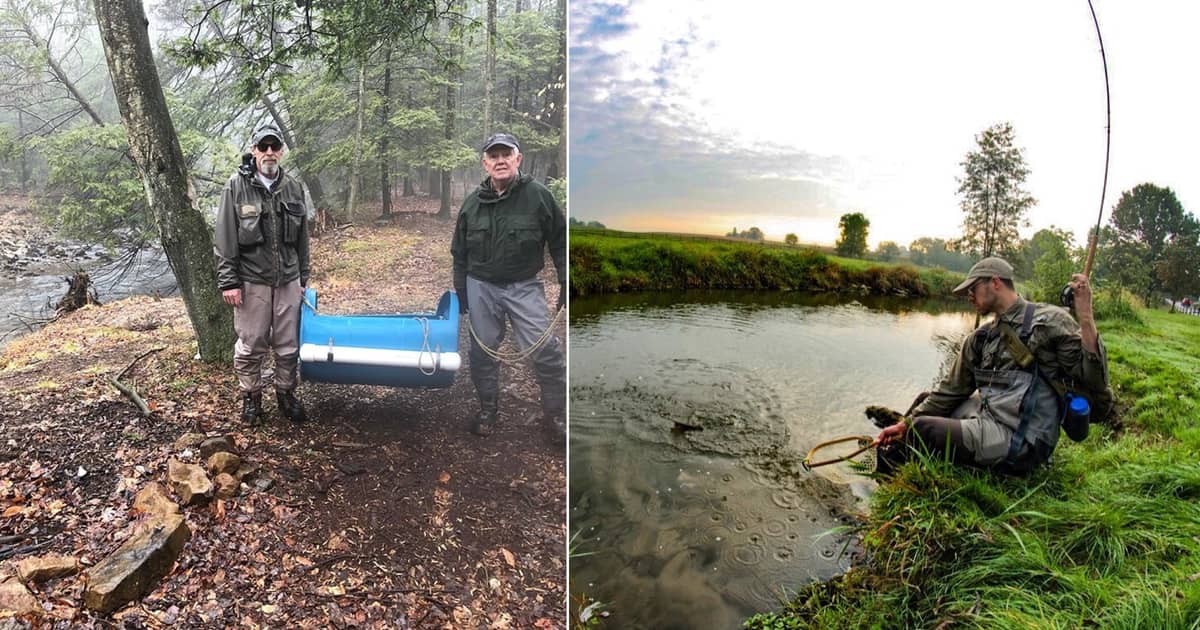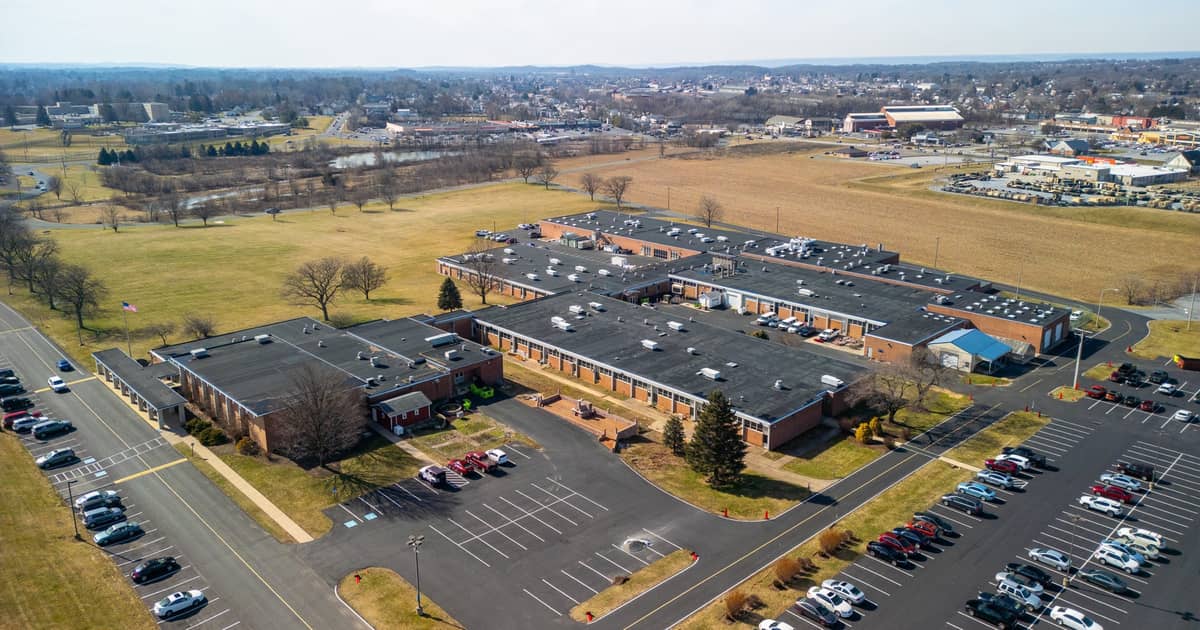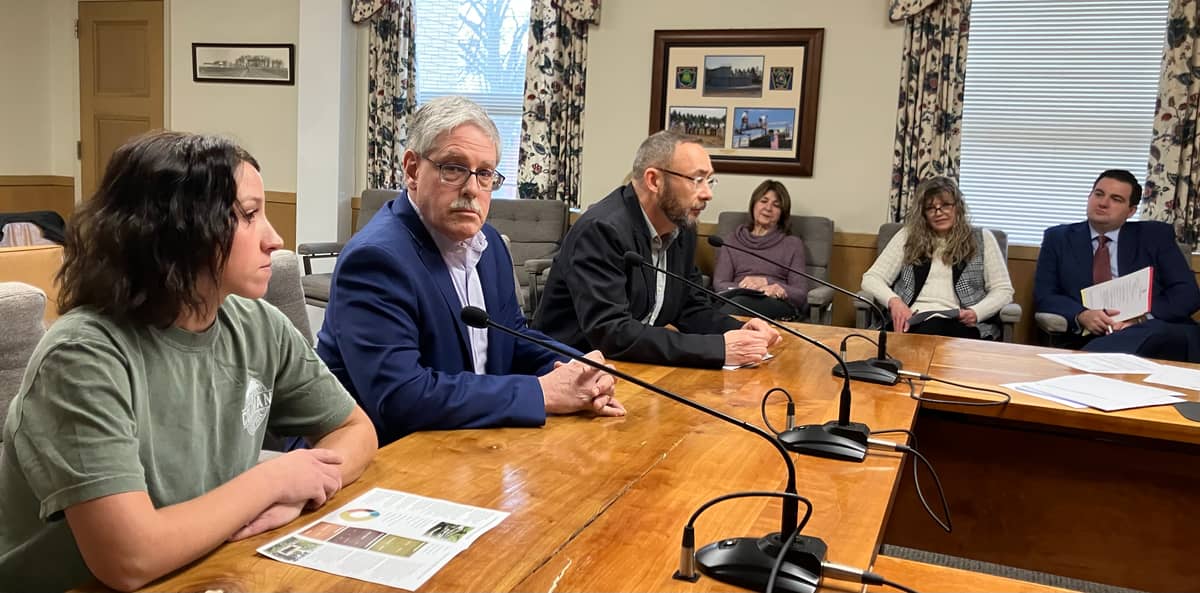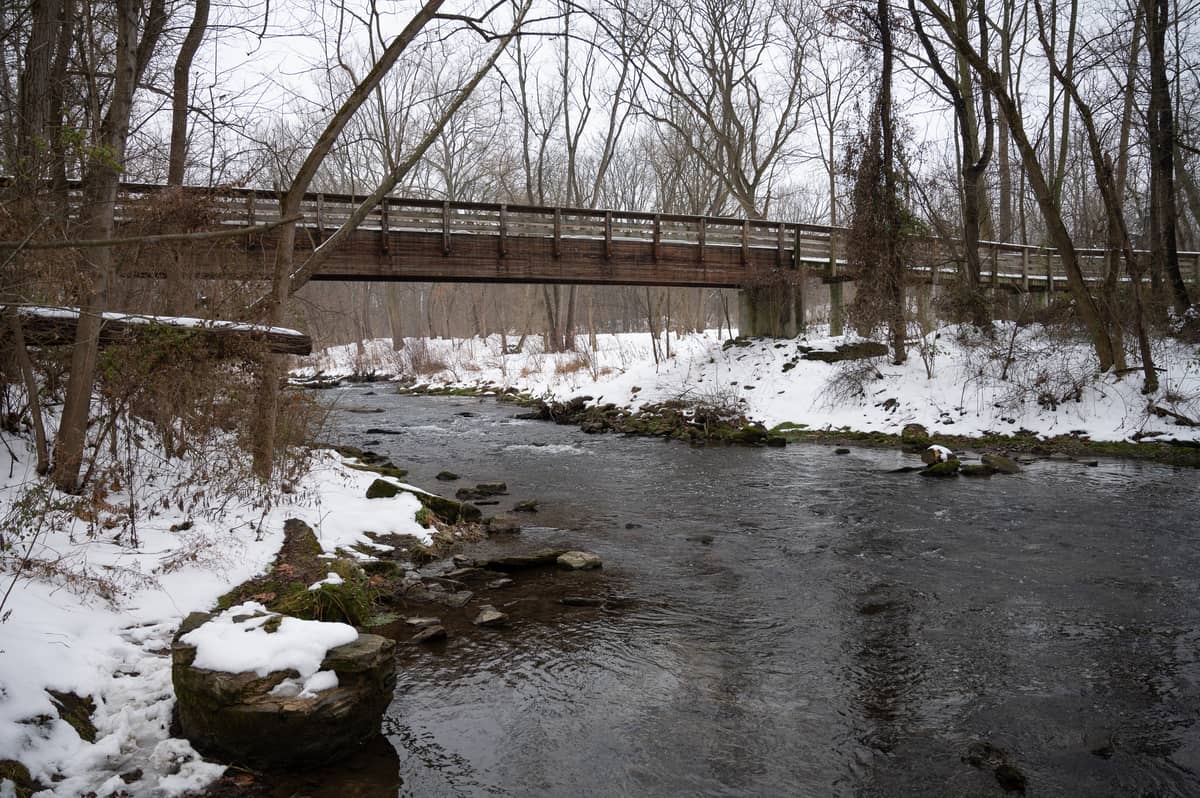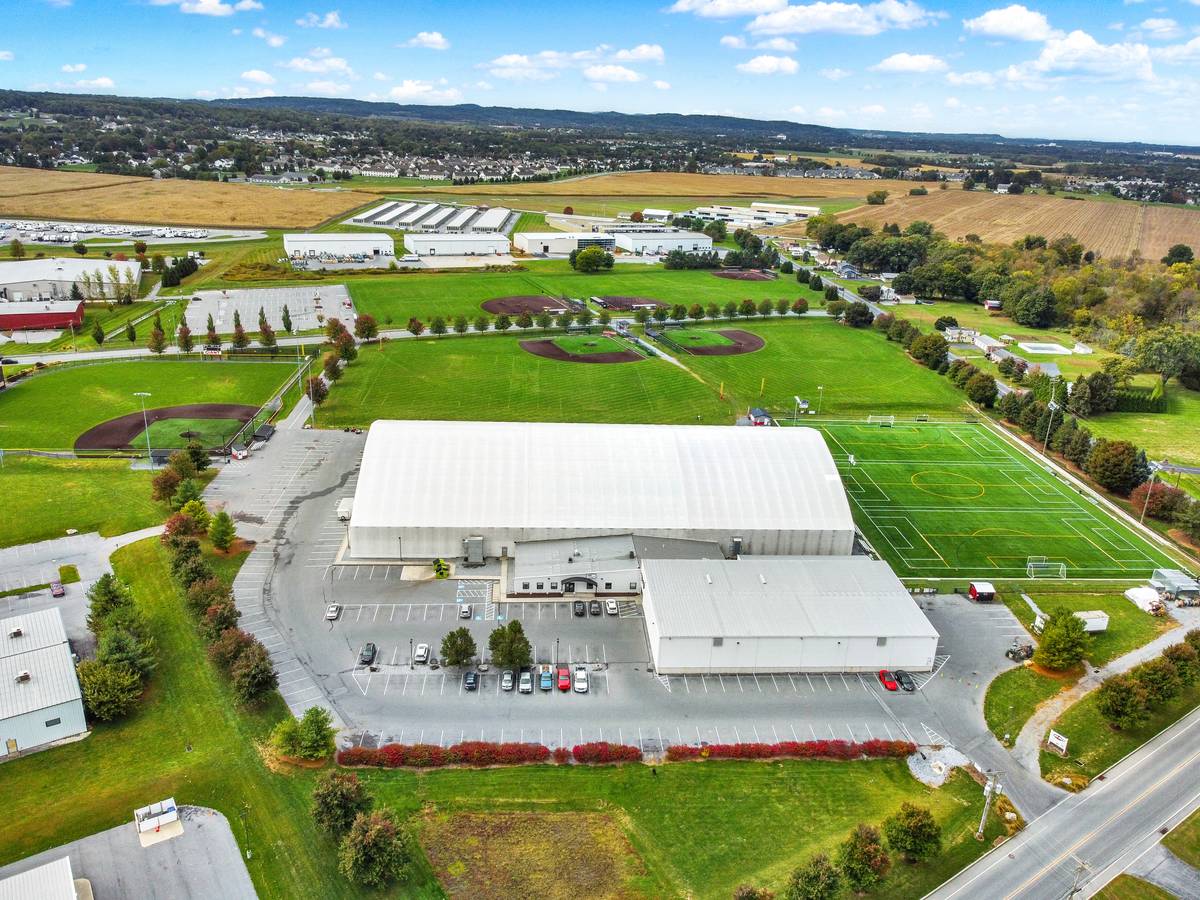Physically, it’s a process of man employing gravity and the forces of nature to aid nature. But there’s another process going on here, one of like-minded individuals gathering religiously to enhance or maintain their environment and water quality.
You can call it conservation, or the Doc Fritchey chapter of Trout Unlimited, or diversion well technology. Or you can just call it fellowship.
They all apply.
There exists a group of six to twelve local conservationists, all members of the Doc Fritchey Trout Unlimited chapter, who have been gathering every week for the past 37 years, with the sole purpose of improving the water quality of Rausch Creek, located in the northwest corner of Lebanon County on State Game Lands 211, west of Goldmine Road – not far from the Appalachian Trail. They seem to understand that water is essential to all life on this planet, and that we all live downstream.
“We’re enjoying each other’s company,” said Dennis Coffman, who heads Doc Fritchey’s diversion well committee. “We tell stories. There’s coffee. There are donuts. If I’m not there, I would miss it. It’s that kind of thing. It’s fellowship. It’s work, and there’s a lot of education that happens out there.”
“I do it as an excuse to get out of the house,” said Joe Connor, one of Doc Fritchey’s board members, with a chuckle. “For me, I gravitated to the idea of conservation work. That’s what it’s all about. We’re, in a very small way, having a ripple effect on the water downstream. If we appreciate going to the ocean or going to the Chesapeake Bay, we should understand the impact we’re having on it locally. We’re like-minded people in our love for the environment.”
That is not to say that the Doc Fritchey diversion well group doesn’t work hard. Their work is both essential and rewarding.
A good majority of what they do on-site is shovel limestone – about a ton and a half per week – into two man-made wells that service the Rausch Creek. Through gravity, the wells’ construction, and the flow of the water, the stone is pulverized and introduced into the creek to increase the PH level and decrease the acidity of the water caused by rain and the run-off from abandoned coal mines.

Trout can live and reproduce in streams with PH levels above 5.0, but not below 4.0. While a thriving trout population is important in Rausch Creek, what’s good for them is also good for us.
“There’s a small dam on the Rausch Creek; the water builds up in that dam, and we have two intake boxes with screens that block any debris,” said Coffman. “The two boxes have gates in them, and we can open and close it to move the water flow. We let the water build up, so it goes over the dam. When we have enough water, we’ll open one of the wells and start flushing it out. It comes through eight-inch pipe and it comes into the well. In the bottom of the pipe, there are three holes, and those holes act like jets. The force of the water rolls the stones against each other, grinds it and shoots it into the slice.”
“In the immediate, if we couldn’t go out there for a month or a year, we would still have enough limestone there to produce a result,” said Connor. “But if we didn’t – for whatever reason – it would ultimately affect downstream and the Stony Creek. Rausch Gap feeds Rausch Creek, Rausch Creek flows into Stony Creek, Stony Creek feeds the Susquehanna River, the Susquehanna River flows into the Chesapeake Bay and the Chesapeake Bay flows into the ocean. The brown trout population wouldn’t be able to sustain itself. If we stopped doing it, either someone would have to pick it up or problems would begin to occur downstream.”
Although the dedication of the Doc Fritchey’s diversion well group can’t be overstated, it would be impossible for the volunteers to perform their work without the ongoing support of certain organizations. Since the first diversion well was constructed in 1987, the group has worked closely with the Pennsylvania Game Commission and has received hundreds of tons of donated limestone from Pennsy Supply’s Millard Quarry in Annville, as well as donated transportation services currently provided by Sensenig Excavating. Services were originally provided by John H. Reigel Excavators of Annville.
“We go out once a week to check the cultures of the well and the water supply,” said Coffman, a 73-year-old resident of Susquehanna Township. “We have to have a certain water flow to make sure the well works. We just have a habit, and we don’t want to break that cycle. Our volunteers are very regular.”
“The science is so simple. It’s an example of a science project that has gone really, really well,” said Connor, a 51-year-old resident of Annville. “You’ve got this core group of dedicated people. It doesn’t matter who you are, it doesn’t matter if you fish. If you like the outdoors and you can hold a shovel, you can be on our team. It’s the one thing with the chapter that I’ve done on a regular basis. It’s something I’ve built into the regular cadence of my life.”
The work that the diversion well group is performing is very reflective of Trout Unlimited’s overall mission and what namesake Doc Fritchey stood for.
Doc Fritchey was the driving force behind the wilderness of Stony Valley being saved from development in the 1970s. The local chapter of Trout Unlimited, which carries his name, boasts 500 members made up of mostly Lebanon and Dauphin County residents, making it one of the largest chapters in the state.
Read More: Stony Valley opens up Oct. 18 for annual drive-thru tour, back on after cancellation
“It’s important for trout to be able to live there, because it’s their home,” said Coffman. “It’s also an indication of the quality of the water. I drink water. It’s a life substance for all of us. It’s important to trout and it’s important to our existence. Whatever we can do to clean and maintain the purity helps everything.”
“It speaks to the mission statement of the organization,” said Connor. “Sometimes Trout Unlimited gets portrayed as a group of old white men who are fly fishermen. While there’s something peaceful about the sport, Trout Unlimited, at its roots, is a conservation group. We all have different reasons for going out there, but I think they’re the right reasons.”
A good majority of the Trout Unlimited members involved with the Rausch Creek diversion well project are retired, and for them, their work is a great way to make a difference and stay active at the same time. And while their 37 years of dedication is certainly admirable, one can’t help but wonder who will take up their torch over the next 37 years.
“We’ve got to get the next group of people involved,” said Connor. “Some of these guys are getting too old to do it. At some point, we need to get the 40- and 50-year-olds to make a commitment to come out. If we can all recognize that this earth is fragile and what we do has an impact, we can all look for ways to improve things. For more than 30 years, people have been doing this to improve the quality of water.”
“We live on this planet, and conservation is important to the survival of animals, fish and water,” said Coffman. “Not to take care of that can lead to health issues for us. In the end, we all suffer. I want people to understand the importance of water. I hope they don’t see this project as just something about trout. It’s a little project and trout having a place to live is important. But we all live downstream.”
And that makes it everyone’s responsibility.
Questions about this story? Suggestions for a future LebTown article? Reach our newsroom using this contact form and we’ll do our best to get back to you.

Become a LebTown member.
Cancel anytime.
Monthly Subscription
🌟 Annual Subscription
- Still no paywall!
- Fewer ads
- Exclusive events and emails
- All monthly benefits
- Most popular option
- Make a bigger impact
Already a member? Log in here to hide these messages
While other local news outlets are shrinking, LebTown is growing. Help us continue expanding our coverage of Lebanon County with a monthly or annual membership, or support our work with a one-time contribution. Every dollar goes directly toward local reporting. Cancel anytime.

